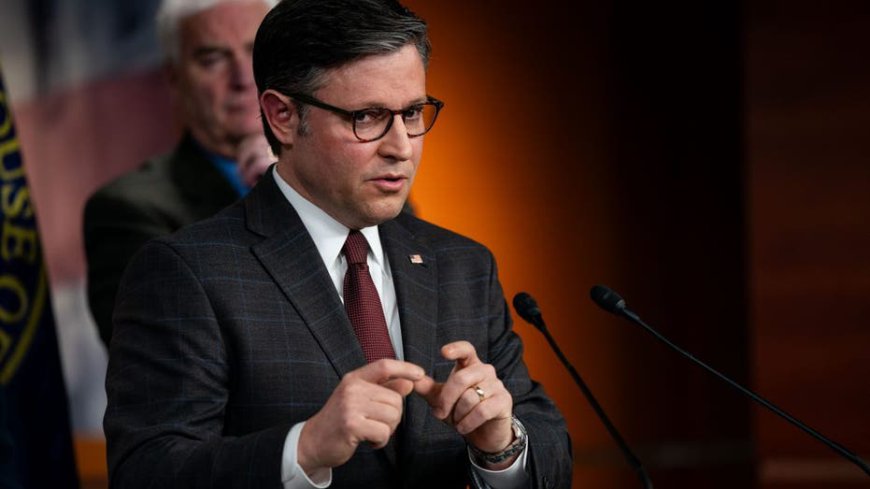House Republicans reach new plan to avoid government shutdown after back-to-back defeats
House Republicans have tentatively reached another deal to avert a partial government shutdown, as the clock ticks closer to midnight.

House Republican negotiators have tentatively reached an agreement on averting a partial government shutdown at the end of Friday, sources told Fox News Digital.
Two people familiar with discussions told Fox News Digital that the deal would include a short-term extension of this year's federal funding levels, disaster aid funding and agricultural aid for farmers — but under three separate bills.
It would also involve an agreement to act on the debt limit next year as part of Republicans' planned massive conservative policy overhaul via a process called reconciliation.
The new strategy comes after President-elect Trump and his allies torpedoed congressional lawmakers' initial plans to avert a partial shutdown ahead of the holidays.
HERE'S WHAT HAPPENS DURING A PARTIAL GOVERNMENT SHUTDOWN
Trump had called on Republicans to act on the debt limit as part of their talks to avert a government shutdown, a demand that dozens of conservative GOP lawmakers bristled at given their concerns about the national debt — which has exceeded $36 trillion.
A plan by House Speaker Mike Johnson, R-La., to follow Trump's directives went down in flames on Thursday evening after 38 Republicans voted with all but two Democrats to kill that bill.
HOUSE GOP LEADERS SCRAMBLE FOR PLAN B AFTER TRUMP, MUSK LEAD CONSERVATIVE FURY AGAINST SPENDING BILL
Trump, along with Vivek Ramaswamy and Elon Musk, spearheaded opposition to congressional leaders' original bipartisan agreement and even threatened to force lawmakers who supported it out of office.
That bill, 1,547 pages, would have extended current government funding levels until March 14. However, GOP hardliners were angered by what they saw as unrelated measures latched onto the bill — like a pay raise for congressional lawmakers, health care policy provisions and legislation aimed at revitalizing RFK Stadium in Washington, D.C.
The second iteration was much slimmer, coming in at 116 pages. It excluded the stadium bill and the congressional pay raise, but still included measures to fund the rebuilding of Baltimore's Francis Scott Key Bridge and more than $100 billion in disaster aid attached.
Rep. Chip Roy, R-Texas, was among the conservatives who rebelled against that bill.
"Old bill: $110BB in deficit spending (unpaid for), $0 increase in the national credit card. New bill: $110BB in deficit spending (unpaid for), $4 TRILLION+ debt ceiling increase with $0 in structural reforms for cuts. Time to read the bill: 1.5 hours. I will vote no," he wrote on X.
However, Roy and other members of the 38-person coalition who opposed the Trump-backed bill were mostly mum on details when leaving a meeting in Johnson's office on Friday morning.
Rep. Andy Ogles, R-Tenn., also declined to update reporters on the plan when leaving the meeting but said he expected votes sometime on Friday.
Now, leaders will need to figure out whether they can rush the bill through traditional channels — which include a House Rules Committee meeting and a provisional House-wide vote — or forgo that via "suspension of the rules," which would hike the threshold for passage from one half to two-thirds.
It is not immediately clear if House Democrats will support the deal.
CLICK HERE TO GET THE FOX NEWS APP
Multiple Democratic lawmakers indicated on Friday morning that they believed House Minority Leader Hakeem Jeffries, D-N.Y., had resumed talks with Johnson about a path forward.
Democrats accused Johnson of reneging on the bipartisan deal on Thursday, fueling their opposition to his second plan.
What's Your Reaction?

























